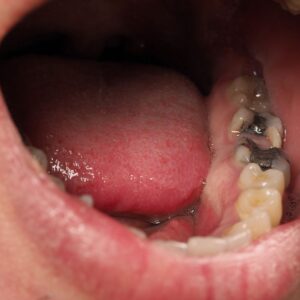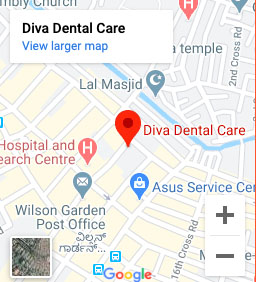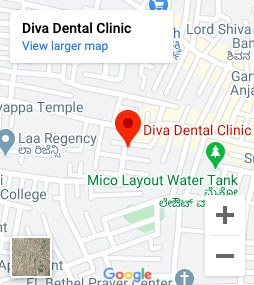Root Canal Treatment – Risks, Pain, Crown, Cost
May 15, 2023

Does having a root canal treatment pose health risks?
Root Canal Treatment - Risks, Pain, Crown
Root canal treatment is a dental procedure that involves removing infected or damaged pulp from the inside of a tooth. The dentist continues filling it with a material to prevent further infection. It is generally considered safe and effective, like any medical or dental procedure. Moreover there are potential risks and complications associated with it. One possible risk of root canal treatment is infection, although this is rare. In some cases. Sometimes the infection may persist after the procedure, leading to further complications. Another potential risk is nerve damage, which can cause pain, numbness, or tingling sensations in the tooth. Additionally, root canal treatment can weaken the tooth, increasing the risk of a fracture. Allergic reactions to the materials used during the procedure are also possible. Finally, some patients may experience delayed healing, which can lead to prolonged pain and discomfort.
It's important to note that the risks associated with root canal treatment are relatively uncommon. Most patients undergo the procedure without any complications. If you have concerns about the risks associated with root canal treatment, it's important to discuss them with your dentist or endodontist before the procedure. They can provide you with more information about the risks and help you make an informed decision about your dental treatment.
What is the cost of root canal treatment in Bangalore?
The cost of root canal treatment in Bangalore can vary depending on several factors, including the severity of the damage or infection, the location of the dental clinic, and the experience of the dentist.
Root Canal Treatment - Risks, Pain, Crown, Cost
Generally, the cost of a root canal treatment in Bangalore can range from INR 3000 to INR 15000 for a single tooth. However, the cost may increase if the tooth requires additional procedures such as a filling or a crown.It's worth noting that prices may differ between different dental clinics, so it's a good idea to research and compare costs before deciding on a clinic. Furthermore, some dental clinics may offer payment plans or financing options to make the treatment more affordable. In summary, the cost of root canal treatment in Bangalore can be relatively reasonable compared to other major cities in India, but it's best to consult with a dental professional to obtain an accurate estimate based on your specific requirements.
Why is a crown necessary after a root canal treatment?
A crown's necessary after a root canal treatment because the procedure can weaken the tooth. During a root canal treatment, the dentist removes the infected pulp from the inside of the tooth. As a result, the tooth becomes more susceptible to fracture.
A crown is a dental restoration that covers and protects the entire tooth, providing additional strength and support. The crown is typically made from materials such as porcelain, which are strong and durable. By placing a crown on the tooth after a root canal treatment, provides extra strength to the tooth.
Additionally, a crown can improve the appearance of the tooth, as it matches the colour of the surrounding teeth.
In summary, a crown's necessary after a root canal treatment to provide additional support and strength to the weakened tooth. It also helps to improve the appearance of the tooth. It's important to follow your dentist's recommendations for aftercare. Your dentist may advise dental restorations to ensure the long-term health and stability of the tooth.
How painful is an unfinished root canal treatment?
An unfinished root canal treatment can be quite painful, as it usually means that the infected or damaged pulp inside the tooth has not been fully removed, and the tooth remains infected. Common symptoms of an unfinished root canal treatment include severe pain, swelling, and sensitivity to temperature changes.
Root Canal Treatment - Risks
The pain associated with an unfinished root canal treatment can range from mild to severe, depending on the extent of the infection and the individual's pain tolerance. In some cases, the pain may be so intense that it interferes with daily activities such as eating and sleeping.

It's important to seek immediate dental care if you suspect that your root canal treatment's unfinished or if you experience any of the symptoms mentioned above. Your dentist or endodontist may recommend completing the root canal treatment or performing additional procedures to remove the remaining infected or damaged tissue.
In general, with proper dental care, the pain associated with an unfinished root canal treatment's managed and eventually resolved. However, delaying treatment can lead to further complications, including the need for a more extensive and costly dental procedure, so it's important to seek prompt care if you suspect that your root canal treatment is incomplete.
How to deal with a root canal gone bad?
Dealing with a root canal gone bad can be a frustrating and painful experience, but there are several options available to address the issue. Here are some steps to take if you believe that your root canal has gone wrong:
Schedule an appointment with your dentist or endodontist: If you are experiencing symptoms such as severe pain, swelling, or sensitivity to temperature changes, it's important to see your dentist or endodontist as soon as possible. They can examine your tooth and identify the cause of the problem.
Consider retreatment: If your root canal treatment has failed, your dentist may recommend a retreatment procedure. This involves removing the existing filling, cleaning the inside of the tooth, and placing a new filling. In some cases, an endodontic specialist may perform the retreatment.
Extraction: In some cases, extraction of the tooth may be the best course of action if the damage is too severe or if the tooth is too weak to support additional procedures. Your dentist or endodontist can discuss the pros and cons of this option with you.
Consider dental implant: If extraction is necessary, a dental implant may be a suitable replacement option. Dental implants are artificial tooth roots that are placed in the jawbone and capped with a prosthetic tooth. This can restore the function and appearance of your smile.



